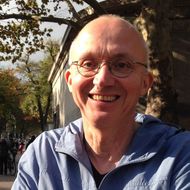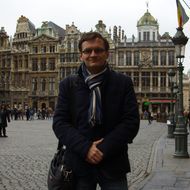- A
- A
- A
- ABC
- ABC
- ABC
- А
- А
- А
- А
- А
- HSE Campus in St. Petersburg
- School of Arts and Humanities
- Department of Philology
- News
- ‘I Finally Got a Chance to Learn Python’
-
Department
-
Sсienсe
-
Education
- Bachelor's programs
- Master's programs
 Musical Stimulacra: Literary Narrative and the Urge to Listen
Musical Stimulacra: Literary Narrative and the Urge to Listen
Delazari I.
Vol. 130. NY; L.: Routledge, 2021.
Knyazev M., Ekaterina Rudaleva.
Studia Linguistica. 2024. Vol. 78. No. 2. P. 315-363.
Попова Т. И., Sherstinova T., Blinova O. V. et al.
In bk.: Speech and Computer: 26th International Conference, SPECOM 2024, Belgrade, Serbia, November 25–28, 2024, Proceedings, Part I. Springer, 2024. P. 187-200.

‘I Finally Got a Chance to Learn Python’

Maria Nalivkina, first-year student, MP "Data Analytics for Politics and Society"
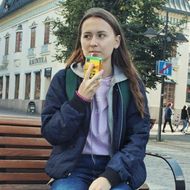
Having completed a bachelor's degree in Sociology and Social Informatics, I began looking for a programme that would allow me to develop in the field of analytics, but at the same time grant peace of mind knowing that I would easily find a job upon graduation. The Master's programme in Data Analytics for Politics and Society turned out to be a perfect compromise, as it allows acquiring both theoretical and practical skills.
What attracted me in this programme was its practical orientation. Remembering my four-year experience as a bachelor student, I could hardly imagine how it would be to spend most of my time not at lectures, but at solving various practical projects. Of course, we devote some time to theory as well, but it is always accompanied by real-life examples, discussions and case studies, which helps to absorb the required material much faster and easier.
Besides, I really like that this year we have small-group classes. This, on the one hand, helps to get to know each of your classmates better and feel more comfortable while studying together, and on the other hand, allows professors to devote enough time and attention to each student. And if we don’t get some moments right away, the professors never mind explaining them once again.
I also got really inspired by the professors’ attitude towards the learning process. Despite the programme being new, all of them are passionate about their subjects, and this feeling is undoubtedly transferred to the students.
Getting back to studies was no problem for me. As a bachelor student at HSE – St. Petersburg, I had four examination periods in one academic year – so now I feel there is actually nothing I cannot cope with. A multi-point assessment scale is another thing I love about HSE. For me, a 10-point grading scale looks more objective than the 5-point one we used to follow at primary school. As for distance learning, well, we already had mixed-format classes even before all the campuses switched to online learning. After all, most foreign students have not managed to arrive in Russia yet.
I have applied for this programme to expand my knowledge in data analysis, so my favourite subjects are in one way or another related to this field. There are also some subjects on the master’s programme that repeat my bachelor’s studies, but I don't mind. After all, practice makes perfect, right?
Also, I finally got a chance to learn Python, and that makes me really happy! Although I tried to learn it on my own, all my attempts to do it failed. Studying in a group makes it much effective, as there is always a professor whom you can ask for advice.
In the future, I would love to expand on my knowledge of analytics. I would also like to try my hand at research – for example, in one of HSE laboratories. Still, I feel I need more determination to make it real, but that’s just a question of time.
Ilya Kuptsov, first-year student, MP ‘Computational Biology and Bioinformatics’
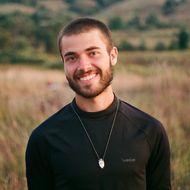
There are two main reasons I opted for the master's programme in Computational Biology and Bioinformatics. First of all, what attracted me was its cooperation with BIOCAD. Because of that students get a chance to gain valuable industry-related skills. This was crucial for me at that time, because previously I had already studied at one master's programme which contained too much theory and lacked practical relevance, and I didn’t like it.
The second factor was my interest in the industry itself. Maybe I am romanticizing a little bit, but it seems to me that solving issues that are at the intersection of biology and mathematics can be really exciting. By applying both mathematics – the most abstract area of knowledge in the world, and biology – a science that is closest to living things, it is a real miracle that we can solve equations and implement algorithms that will become part of a large industry. I feel I want to work in a team that creates these kinds of things.
Studying on the programme isn’t easy. Once I even thought that I would be expelled after the first examination period. But the classes went by, I studied hard and made sure all the homework was done, so it turned out that the lion is not so fierce as they paint him. Still, even now sometimes I doubt my abilities, but one thing I know for sure: I will do my best to stay! I don't have the feeling that I'm wasting time here. On the contrary, I think: 'Oh, this will certainly come in handy in my future career, so I would better study it properly'.
Despite the studies being intense, I really like the programme. From the subjects that we are taught, there is rarely one I’m not fond of. I also like the involvement of the teachers with whom we are constantly in touch. There has never been a problem in asking questions. Besides, we have developed a good atmosphere within the group.
The classes are held in an interactive manner. Studying in small groups allows us to discuss and figure out certain moments of the lecture that we did not understand at first. The only thing that upset me a little is the transition to distance studying. I am grateful to everyone who is trying to make this transition less painful, but I still miss offline classes a lot, as well as the university facilities we had access to.
Almost all of our subjects can be divided into two groups: mathematical and those related to programming. As for my favourite subject, I can say for sure that I am keen on discrete mathematics. My previous education was mostly related to mechanics, so working with discrete objects is something new for me. Well, what I find most challenging is learning how to work with algorithms, but still, it is extremely captivating. Knowing that it will be useful for my future career helps me not to give up.
Also, during the classes we are often asked to solve mathematical tasks. What impressed me was how other students dealt with these tasks. At my former university, we had never been given a task without a solution that was already known. At HSE, you often need to find your own solution.
As for my future plans, I would say I just want to become a true specialist. The most important thing now is to decide what kind of tasks I want to work with. Within one industry, it’s impossible to deal with everything at once; so I have to decide on a major. In the course of my studies, I will try to single out the tasks that reflect my personality better in order to give them more attention.
Daria Zamyatina, first-year student, MP 'Language Technology in Business and Education'
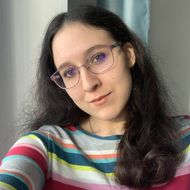
Having gained a bachelor's degree in linguistics, I realized that I would like to try myself in the field of IT, and the 'Language Technology in Business and Education' programme offered exactly what I was looking for! I got really excited when I found out that the programme accepts not only computational linguists but also those with a traditional linguistic background. At first, I was worried that without knowledge of advanced mathematics and programming, I had nothing to do there. But being taught everything from scratch, all my doubts have vanished away and now I feel more confident!
I like the programme for its uniqueness and versatility, which allows each student to follow an individual learning path. The professors always take into account students’ points of view and do their best to promptly react to any suggestions. There is always someone to ask for advice.
What is great about HSE education system is that it provides a lot of opportunities for self-realization. Say, there’s something for every taste: real-life projects, internships in well-known companies, and a range of regular conferences. Today we study in a distance mode. This, on the one hand, saves time, and on the other hand, makes us miss live communication even more. I really look forward to returning to offline studies at the university.
One of my favourite subjects is called Fundamentals of Programming. There is nothing more pleasant than when your code starts to actually work. Another subject that I got excited about is called Mathematical Foundations of Natural Language Research, studying it requires quite a lot of effort, but I feel that my knowledge is expanding step by step, and I like it.
At the moment, we mostly focus on accumulating a theoretical base and revising the material, so there is not as much practice as we would like to have. But there is a new semester ahead, so I am sure we will get to a practical part pretty soon.
In my second year, I plan to learn subjects from the field of EdTech, for example, digital linguodidactics and automated learning systems development. I believe that computer training programmes will be in great demand in the future, and I want to take part in that.
-
https://elearning.hse.ru/en/mooc/
Massive Open Online Courses
-
https://www.hse.ru/en/visual/
HSE Site for the Visually Impaired
-
http://5top100.com/
Russian Academic Excellence Project 5-100
- © HSE University 1993–2024 Contacts Copyright Privacy Policy Site Map
- Edit
